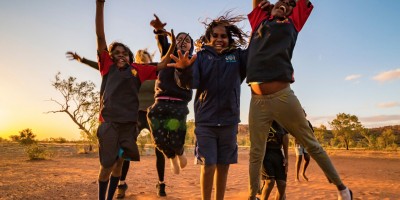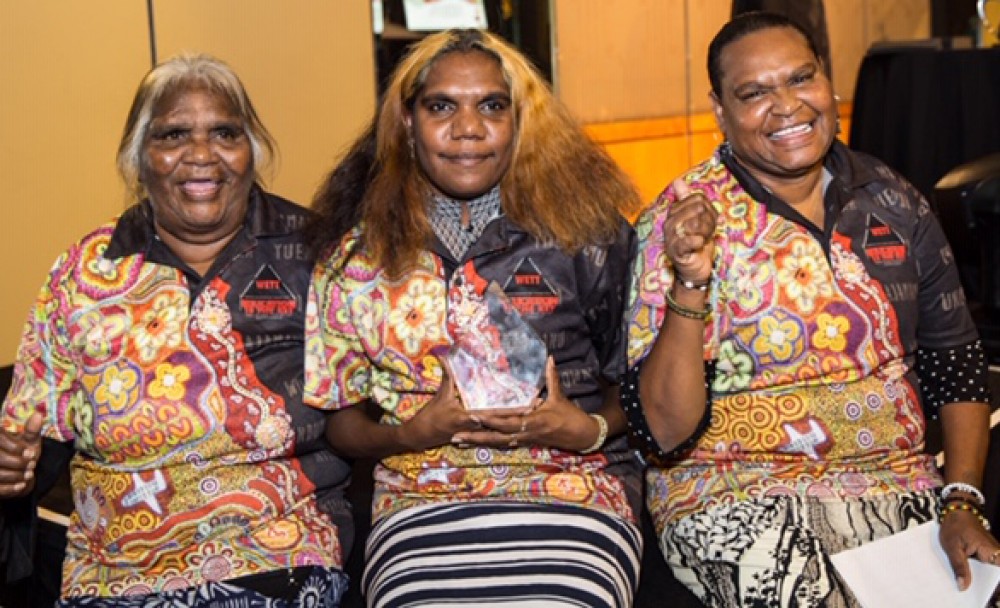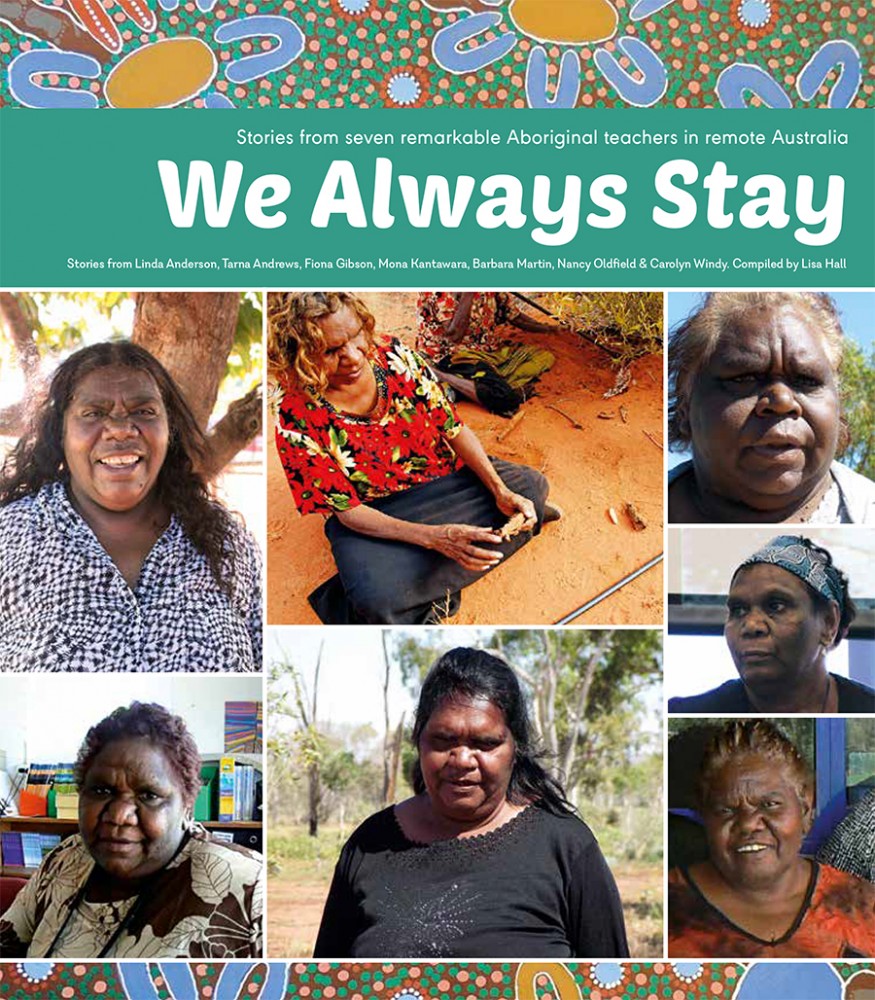Tag: Education

The traditional owners of the iconic Watarrka (Kings Canyon) National Park in the Northern Territory have combined their rent income from the park with private donations to build a secondary classroom to keep their children at school for longer.
An open plan classroom, computer room and teachers office will be launched on Saturday, 9th March at 10am with a smoking ceremony at Lilla outstation, more than four hours south west of Alice Springs.
Traditional owner Sadie Williams said the $320,000 investment will enable local students to stay living with their families in surrounding outstations while they continue their studies at the Watarrka school until year 10.
“We have fought hard over many years for our primary school to stay open so that our kids can get a good bilingual and bicultural education on country,” Ms Williams said.
“We put some of our own money to build a high school out bush for our children. Kids won’t get homesick like when they have to go away to school in cities. It makes our kids feel happy and safe living at home with their families and going to high school.”
“Education is very important to us and we know that keeping our kids at home for as long as possible will give them a better chance to succeed in life,” she said.
The traditional owners invested $135,000 of their collective rent income in the project, while the not-for-profit Watarrka Foundation raised the balance from a variety of sources over an 18 month period.
The Central Land Council’s community development program supported the traditional owners to plan and monitor the construction project in partnership with the foundation.
“These community-driven initiatives are more likely to help close the education gap than top-down government programs because the childrens’ families are engaged and are using their own income,” said CLC chief executive Joe Martin-Jard.
The traditional owners’ investment in the secondary classroom project builds on their earlier decisions to spend more than $180,000 for education support projects for the Watarrka outstations and their school.
“The right to access an education in your home environment is an accepted human right and we are proud of having contributed towards providing this to the families in Watarrka,” said Watarrka Foundation chair Paul Jensen.
Christine Munro, a teacher at the Watarrka school and a member of the foundation’s advisory group, provided on-site support to the secondary classroom project.
Before the project, she had to teach up to 25 students of all ages in one small classroom.
“Having an additional classroom has enabled us to separate the students into age groups and give them each more focused attention which is helping them to learn faster.”
“The kids love the space and volunteered an entire Saturday to help shift, carry and organise our learning materials.
“Just knowing the world out there cares about their education is making a difference. It’s a joy to teach smiling children.”
Media contacts: Marie Rançon, media@clc.org.au, 0467 879 254 / Paul Jensen, 0419 603 330, paul@watarrkafoundation.org.au.

The Central Land Council celebrates its very first Indigenous Governance Award winner – the Warlpiri Education and Training Trust.
The WETT advisory committee last night won the non-incorporated organisations category of the award for its outstanding bilingual and bicultural education and lifelong learning programs in the Northern Territory’s Tanami Desert.
The committee advises the WETT about how to invest gold mining royalties in community driven initiatives supporting the education and training priorities of four remote communities.
Fiona Gibson, a retired teacher from Nyirrpi community and a founding member of the committee, has helped to plan and monitor some of the CLC’s most successful community development programs since 2005.
Ms Gibson accepted the award on behalf of her colleagues.
“We are very proud of what we have achieved working together and of our young people who are now working with us on the WETT advisory committee,” she said.
“They are keeping education strong in our communities.”
Accepting the award with Ms Gibson was Cynthia Wheeler, the new chair of the WETT advisory committee who works at the Yuendumu school.
From a new generation of educators, Ms Wheeler personifies the achievements of the committee’s succession planning.
“Our message for everyone is that education is the key,” Ms Wheeler told the award night crowd in Melbourne.
“Our vision is for Yapa [Warlpiri speakers] to be strong in their knowledge of culture, country and language and to stand up for our communities.
“Our voices will be heard. We will have the same opportunities as everyone else. Our children will be confident, knowledgeable, disciplined, healthy and respected. They will have good roles and jobs, as will the generations to come.”
Both women thanked the traditional owners of Newmont’s Granites gold mine and paid tribute to CLC director David Ross, one of the WETT’s first and most enthusiastic supporters.
The trust kicked off the CLC’s community development program through which dozens of Aboriginal groups in Central Australia have invested a total of around $100 million from their various land use agreements in projects they drive.
One of these groups, from the remote Alekarenge community, was highly commended at tonight’s awards ceremony.
The WETT started when Ms Gibson and her teacher colleagues from Lajamanu, Yuendumu and Willowra asked Mr Ross to help them invest royalty payments in projects to improve education and training outcomes in their communities.
Since then, the trust spent almost $32 million on projects such as community learning centres, school excursions, early childhood and youth leadership programs, bilingual education resources and a Yapa curriculum.

Seven Aboriginal teachers from remote central Australian communities have documented their education journeys in We Always Stay, to be launched tomorrow at the Central Land Council.
The teachers, all women, have all worked in their community schools for more than 30 years and beat significant odds in order to qualify in their profession.
They co-wrote the book with Lisa Hall from the Batchelor Institute to raise awareness of the achievements of Aboriginal teachers, the barriers they face and to encourage aspiring teachers to follow in their footsteps.
“I hope people can hear my story and how people helped me, all the community people… how my family helped me,” said Fiona Gibson who has taught at Nyirrpi, a small community five hours northwest of Alice Springs.
“Then community people can see it for themselves and start thinking ‘we might ask to study’ because our community needs more Yapa [Aboriginal] teachers.”
Linda Anderson, from Papunya, said “I think it is really important to have Anangu [Aboriginal] teachers in our classrooms because they know the culture from the inside”.
Ms Anderson’s career exemplifies how, with the right support, bi-lingual and bi-cultural local teachers can make an enormous contribution to both their communities and their non-Aboriginal colleagues, who rarely stay long out bush.
“Kardiya [non-Aboriginal] teachers are just visitors. We are the ones who will always be here, teaching our kids,” said Barbara Martin from Yuendumu.
Ms Martin and three of her co-authors are members of the CLC’s Warlpiri Education and Training Trust (WETT), a community development program which funded the book from gold mining royalties.
CLC director David Ross, an early champion of the WETT, will launch We Always Stay on Thursday, 22nd March from 4:30 – 6pm at the CLC’s North Stuart highway office in Alice Springs.
We Always Stay is available from www.batchelorpress.com for $35.
